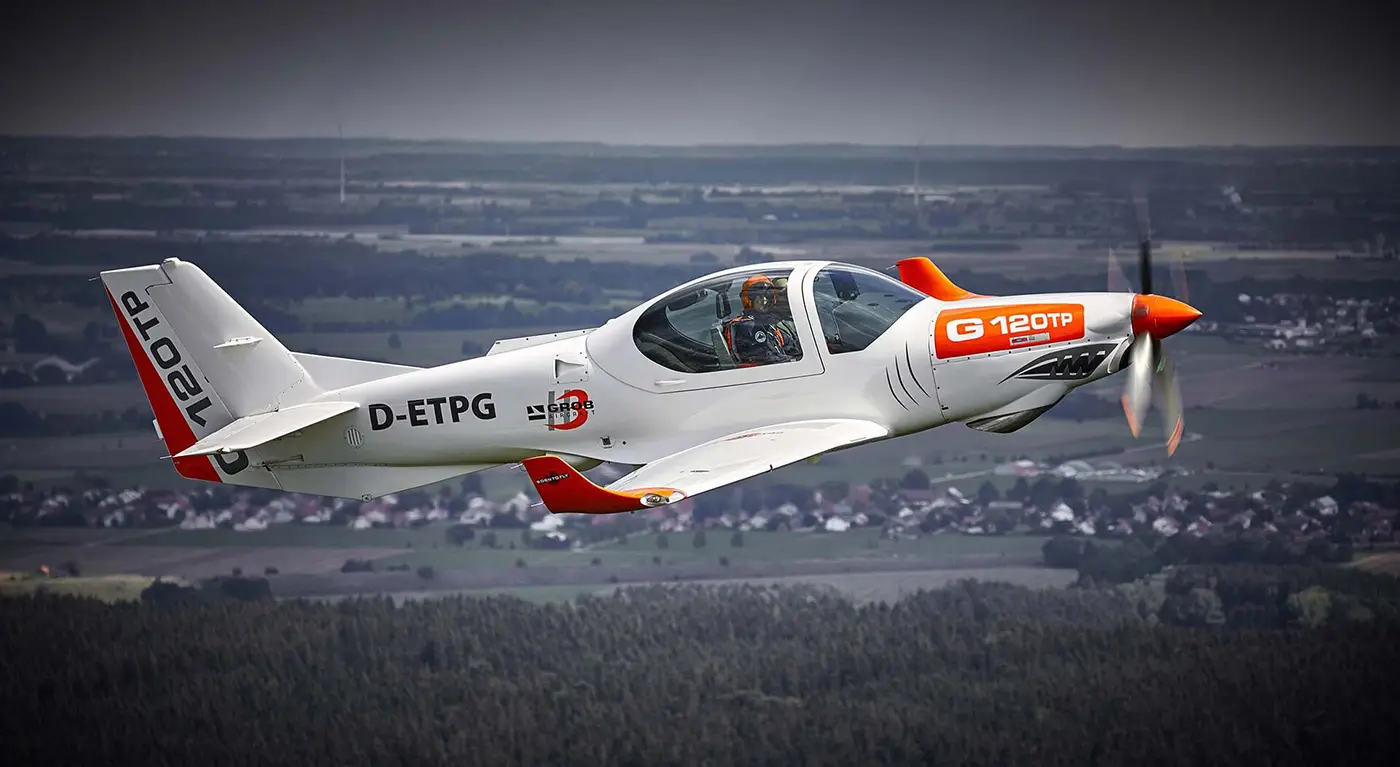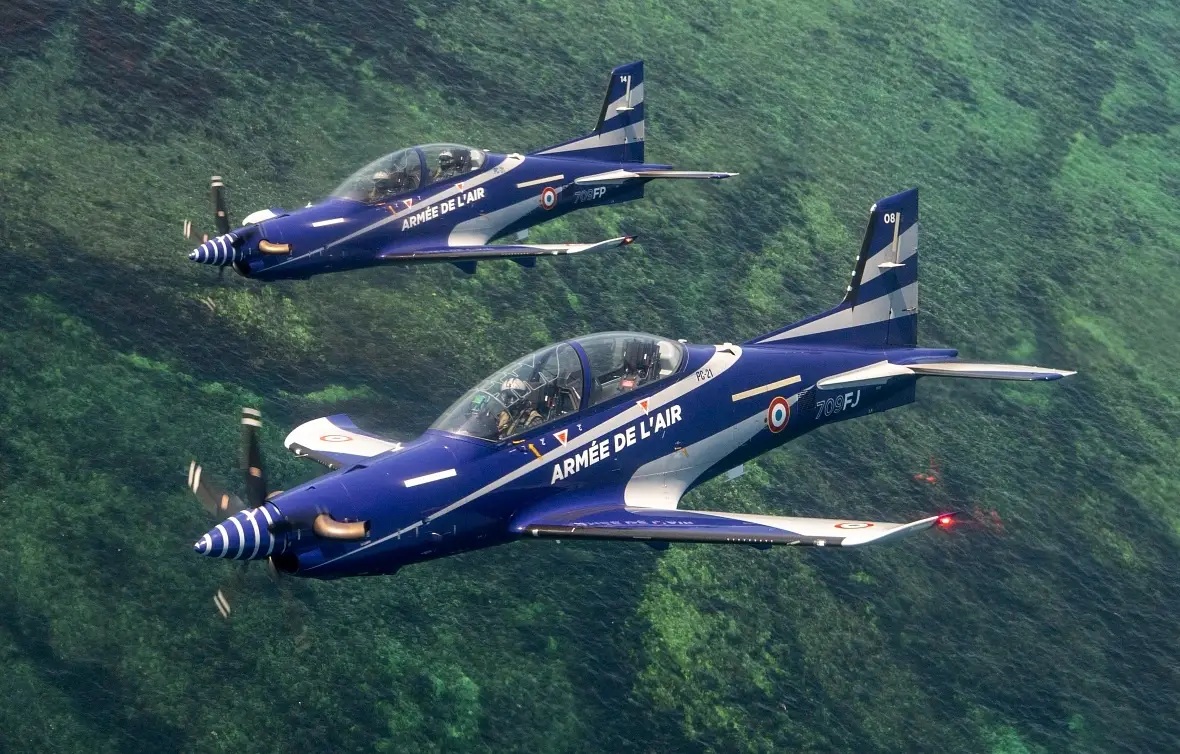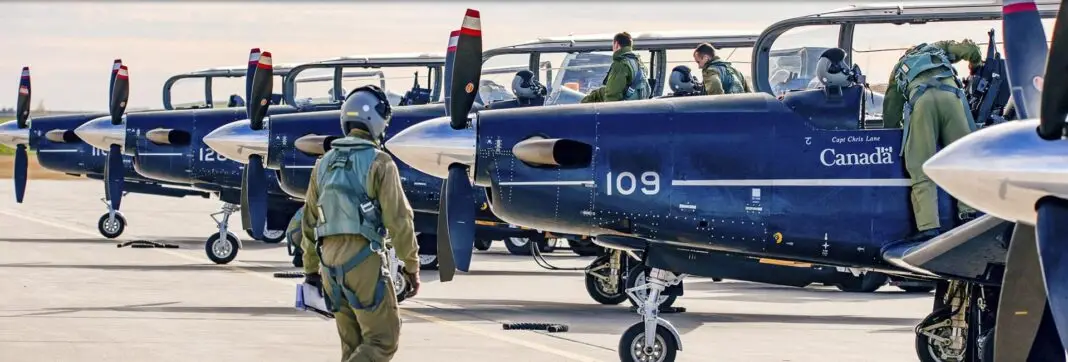The Royal Canadian Air Force (RCAF) is making great progress in modernizing its education and training programme. After the RCAF signed an agreement with Sky Alyne Canada Limited Partnership for various training services at the end of May, the RCAF has now also finalized the delivery of new training aircraft: 19 PC-21s will be procured from Pilatus and a total of 23 G120TPs from German manufacturer Grob.
Sky Alyne Canada is a joint venture between CAE and KF Aerospace, two of Canada’s leading aerospace, training and defense companies. The 25-year contract, under the Future Aircrew Training (FAcT) program, includes aircrew training programs, aircraft and simulators, civilian instructors and instructional systems, as well as other key services such as aircraft and airfield maintenance, accommodation and catering.
The FAcT program also includes aircrew training for air combat systems officers and operators of airborne electronic sensors, which is currently still carried out internally by the RCAF.
The program involves a total of 71 new training aircraft and helicopters, including 19 Airbus H135 helicopters, seven Beechcraft King Air 260s and three De Havilland Dash 8-Q400s. The new addition is 23 Grob G120TP turboprop aircraft for basic training, which are to be put into service as early as 2025. And 19 Pilatus PC-21 turboprop aircraft for advanced pilot training, with deliveries scheduled to begin in 2026.
The aircraft are to be based at Moose Jaw Air Force Base in the state of Saskatchewan. will be stationed there.

The training aircraft Grob G 120TP is considered a highly advanced training platform thanks to its simple operation and easy-to-learn system functions, covering the typical segments of basic, basic and advanced training and ideally completing the Grob Training Systems (GTS). The Grob G 120TP is currently used by numerous armed forces, including Sweden, the United Kingdom and the United States. To date, more than 200 Grob G 120TPs have been delivered worldwide.

The Pilatus PC-21 offers air forces a cost-effective, highly efficient training solution. With the PC-21, pilots who will later fly fighter aircraft do not have to switch to jet aircraft until much later than pilots flying conventional training aircraft. This reduces costs and training time. To achieve this, Pilatus has extended the design and performance range to bring the single-engine turboprop into an area previously reserved for jet aircraft. A fully digital glass cockpit environment is capable of emulating fighter aircraft types. Pilatus has so far delivered around 250 PC-21s to various air force customers, including the Swiss Air Force (-> current news about the Swiss Armed Forces), the Spanish Air Force and the Royal Australian Air Force, to name but a few.











